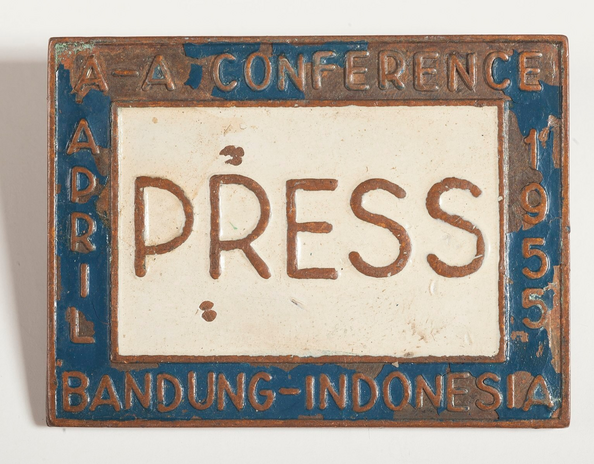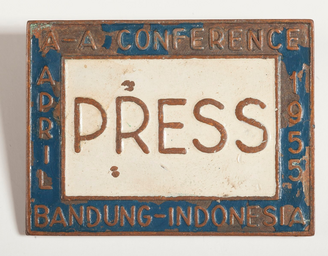February is Black History Month; a month for the celebration of courageous African-American trailblazers. Despite experiencing the physical chains of slavery, almost equally crippling grasp of segregation and modern-day racism, the individuals who will be honored during this month positively impacted not only Black communities but the entire world. Yes, the iconic legacies of those such as Harriet Tubman, Frederick Douglass, Martin Luther King Jr., Rosa Parks, Mae Jemison and Barack Obama will rightfully be honored. However, during this month, it is also important to honor the legacies of those who rarely grace the pages of our history books. Let us also honor the legacies of Jane Bolin; the first African-American female to enroll in Yale Law School and serve as a judge, Gordon Parks; the first African-American to be hired as a Life Magazine staff worker, Ethel Waters; the first African-American to host a tv show and Hiram Revels; the first African-American U.S. Senator and Dr. Patrica Bath; the first African-American female doctor to obtain a medical patent among others. Specifically, it is appropriate and necessary that we also honor the legacy of the woman who was a storyteller; the woman who was among those that climbed mountains and paved roads for African-American female journalists such as April Ryan, Yamiche Alcindor, Abby Phillip, Kristen Welker, Joy Reid and Blayne Alexander. No, unfortunately, this is not a story that you will find in a history book. This is the story of Ethel L. Payne; The First Lady of the Black Press.
“Mr. President…” On July 7, 1954, Chicago Defender Reporter Ethel L. Payne entered the Executive Office Building determined to ask President Dwight Eisenhower a pressing question; a question that would be highlighted from both sides of the then-segregated press and prompt a front-page response from the president. Specifically, in true Payne fashion, she once again asked a pertinent question regarding segregation and civil rights. Months prior, Payne had pressed Eisenhower on everything from Brown vs. Board of Education to HBCU Howard University’s choir not receiving the opportunity to perform at a political event. Despite being the first and only African-American female in the room, Payne asked the question that many African-Americans wanted and needed an answer to. “Mr. President,” she proclaimed, “we were very happy last week when the deputy attorney general sent a communication to the House Interstate and Foreign Commerce Committee saying that there was legal basis for passing a law to ban segregation in interstate travel… I would like to know if we could assume that we have administration support in getting action on this?” President Eisenhower responded somewhat irritated. Reportedly bothered, he stated that his administration was not concerned with supporting a “special group.” His reaction was plastered upon many front pages such as The Washington Star’s that carried a telling headline: President Annoyed by Query on Travel Race Ban Support. Eventually, President Eisenhower’s irritation would grow even larger resulting in Payne never again receiving the opportunity to ask him a question. Nevertheless, this was not the first or last time that Payne would ask a pressing question, advocate for her race and challenge the boundaries set before her.
Born on August 14, 1911, in Chicago, Illinois, Ethel Lois Payne was the product of enslaved grandparents. Nevertheless, she was not one to let the legally eradicated, yet, still confining chains of slavery withhold her from a true destiny. During her childhood, Payne developed a strong love for reading and writing as her mother constantly read novels by Louisa May Alcott and poems by Paul Laurence Dunbar. Eventually, her love would be cultivated by a high school teacher who also famously taught Ernest Hemingway. However, while her love for reading and writing was undeniably established, Payne’s dream of becoming a well-known writer and journalist did not immediately come to fruition. Instead, she dreamed of becoming a civil rights lawyer; an occupation that would have benefited many African-American Chicagoans who reportedly experienced Jim Crow just as severely as Southern African-Americans did. Yet, her legal dreams were halted when her law school application was denied because of her race.
Probably heartbroken, but not defeated, Payne decided to attend journalism school years later; a decision that would soon result in groundbreaking history. It was in 1950 while working for the Army Special Services Club during the Korean War, that Payne’s journalism skills were discovered. Specifically, during the war, Payne journaled about the segregation that African-American soldiers experienced and the abandonment that children with both Japanese and African-American parents were victims to. Although her forthright journal entries were deemed controversial to some, they impressed many. Successfully, they gained her a job at the Chicago Defender, a prominent African-American newspaper that published the works of literary greats such as Ida B. Wells and Langston Hughes.

Diligently, under the Chicago Defender, she covered stories about the Army-McCarthy Trials, Brown vs. Board of Education case, Civil Rights Movement and Vietnam War. No, evidently, Eisenhower was not the only president that sat upon the receiving end of Payne’s questions. She proudly worked in the White House Press Corps and asked the pressing questions as the presidential transition of power occurred multiple times; from Eisenhower to Reagan. Like she had previously, Payne questioned presidents on many controversial topics. Immediately, her powerful work and strong drive as an African-American journalist gained her the honorable title: The First Lady of the Black Press. However, during her time in the White House Press Corps, Payne and her work eventually began to transcend color lines; the very lines that had separated her from the other side of the press for over two decades. In 1972, Payne broke color lines at CBS when she became the first African-American female radio and tv commentator to work for a national network. However, while apart of the very press that once rejected African-Americans on basis of their skin color, Payne still brought civil rights advocacy to journalism. Effectively, she covered stories about Nelson Mandela and African apartheid among other civil rights issues for the rest of her life.
Clearly, the life and times of Ethel L. Payne are extraordinary. Honestly, they are inspiring as they include a powerful woman who asked pressing questions, advocated for her race and challenged the boundaries that were set before her. They also prove that despite challenges, monumental or minuscule, powerful journalistic work can still be curated and serve as a catalyst for others. Like a true advocate, Payne and her work not only served her fellow African-Americans who lived during her lifetime. Indeed, she positively impacted millions who would come after her. Therefore, as we celebrate this Black History Month, let us not forget the legacy that Payne left behind. Let us celebrate the woman who was a storyteller; the woman who climbed mountains and paved roads for the African-American female journalists that so powerfully grace our tv screens today. Yes, let us forever honor the legacy of Ethel L. Payne; The First Lady of the Black Press.


